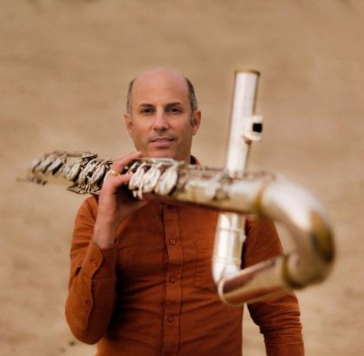Het onderzoeksprogramma Smart Education van de Faculteit Onderwijs en Opvoeding richt zich op het ontwikkelen en verspreiden van kennis en expertise over de effectieve inzet van de mogelijkheden van Kunstmatige Intelligentie in het onderwijs.
MULTIFILE
Innovation is crucial for higher education to ensure high-quality curricula that address the changing needs of students, labor markets, and society as a whole. Substantial amounts of resources and enthusiasm are devoted to innovations, but often they do not yield the desired changes. This may be due to unworkable goals, too much complexity, and a lack of resources to institutionalize the innovation. In many cases, innovations end up being less sustainable than expected or hoped for. In the long term, the disappointing revenues of innovations hamper the ability of higher education to remain future proof. Against the background of this need to increase the success of educational innovations, our colleague Klaartje van Genugten has explored the literature on innovations to reveal mechanisms that contribute to the sustainability of innovations. Her findings are synthesized in this report. They are particularly meaningful for directors of education programs, curriculum committees, educational consultants, and policy makers, who are generally in charge of defining the scope and set up of innovations. Her report offers a comprehensive view and provides food for thought on how we can strive for future-proof and sustainable innovations. I therefore recommend reading this report.

Dit Trendrapport Open Education 2014 beschrijft de trends op het gebied van open education in binnen- en buitenland, geschreven vanuit de context van het Nederlandse hoger onderwijs. Dat gebeurt aan de hand van acht artikelen van Nederlandse experts op het gebied van open en online onderwijs en acht korte intermezzo’s.

MUSE supports the CIVITAS Community to increase its impact on urban mobility policy making and advance it to a higher level of knowledge, exchange, and sustainability.As the current Coordination and Support Action for the CIVITAS Initiative, MUSE primarily engages in support activities to boost the impact of CIVITAS Community activities on sustainable urban mobility policy. Its main objectives are to:- Act as a destination for knowledge developed by the CIVITAS Community over the past twenty years.- Expand and strengthen relationships between cities and stakeholders at all levels.- Support the enrichment of the wider urban mobility community by providing learning opportunities.Through these goals, the CIVITAS Initiative strives to support the mobility and transport goals of the European Commission, and in turn those in the European Green Deal.Breda University of Applied Sciences is the task leader of Task 7.3: Exploitation of the Mobility Educational Network and Task 7.4: Mobility Powered by Youth Facilitation.
Energy transition is key to achieving a sustainable future. In this transition, an often neglected pillar is raising awareness and educating youth on the benefits, complexities, and urgency of renewable energy supply and energy efficiency. The Master Energy for Society, and particularly the course “Society in Transition”, aims at providing a first overview on the urgency and complexities of the energy transition. However, educating on the energy transition brings challenges: it is a complex topic to understand for students, especially when they have diverse backgrounds. In the last years we have seen a growing interest in the use of gamification approaches in higher institutions. While most practices have been related to digital gaming approaches, there is a new trend: escape rooms. The intended output and proposed innovation is therefore the development and application of an escape room on energy transition to increase knowledge and raise motivation among our students by addressing both hard and soft skills in an innovative and original way. This project is interdisciplinary, multi-disciplinary and transdisciplinary due to the complexity of the topic; it consists of three different stages, including evaluation, and requires the involvement of students and colleagues from the master program. We are confident that this proposed innovation can lead to an improvement, based on relevant literature and previous experiences in other institutions, and has the potential to be successfully implemented in other higher education institutions in The Netherlands.
Students in Higher Music Education (HME) are not facilitated to develop both their artistic and academic musical competences. Conservatoires (professional education, or ‘HBO’) traditionally foster the development of musical craftsmanship, while university musicology departments (academic education, or ‘WO’) promote broader perspectives on music’s place in society. All the while, music professionals are increasingly required to combine musical and scholarly knowledge. Indeed, musicianship is more than performance, and musicology more than reflection—a robust musical practice requires people who are versed in both domains. It’s time our education mirrors this blended profession. This proposal entails collaborative projects between a conservatory and a university in two cities where musical performance and musicology equally thrive: Amsterdam (Conservatory and University of Amsterdam) and Utrecht (HKU Utrechts Conservatorium and Utrecht University). Each project will pilot a joint program of study, combining existing modules with newly developed ones. The feasibility of joint degrees will be explored: a combined bachelor’s degree in Amsterdam; and a combined master’s degree in Utrecht. The full innovation process will be translated to a transferable infrastructural model. For 125 students it will fuse praxis-based musical knowledge and skills, practice-led research and academic training. Beyond this, the partners will also use the Comenius funds as a springboard for collaboration between the two cities to enrich their respective BA and MA programs. In the end, the programme will diversify the educational possibilities for students of music in the Netherlands, and thereby increase their professional opportunities in today’s job market.
